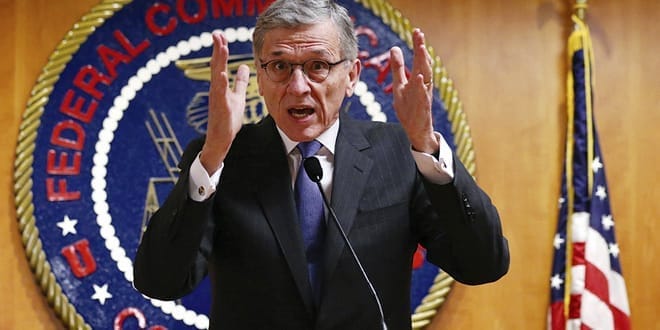The Federal Communications Commission (FCC), has already ruled on what constitutes the definition of broadband over objections by the National Cable & Telecommunications Association (NCTA).
Now they are looking to further pushback against state laws that they allege are keeping cities from erecting public alternatives to major broadband companies.
If approved, the FCC would find that the states have erected barriers to the timely and reasonable deployment of high-speed Internet access in Chattanooga, Tenn. and Wilson, N.C. It would effectively knock down the state laws that the cities say inhibit them from building viable competitors to the likes of Comcast and Verizon.Though Tennessee and North Carolina are currently in the FCC's crosshairs, they are not only ones on the agenda.
Roughly 20 states have such limits on the books. Overturning the ones in Tennessee and North Carolina would mark the opening of a wider battle over municipal broadband by the federal government. Although any FCC decision in February would be narrowly tailored to the two cities, the legal theory underpinning the proposed action would likely be used to answer similar petitions in the future involving other states.The FCC claims it has the authority to rule on what it believes are anti-municipal measures against broadband service based on section 706 of the Communications Act. The Communications Act of 1934 can be read here. Section 706 can be found on page 323.
Republicans, however, do not believe section 706 gives the FCC such powers and have moved to block the state initiatives by restricting the authority of the FCC under section 706.
President Obama has come out as a strong supporter of net neutrality. He has also campaigned for greater access to broadband services, highlighting among other things, a lack of competition. The FCC, who is now run by a former campaign worker of his, has found a large portion of Americans lack access to quality broadband and most lack substantive competition. If the petitions by the cities in Tennessee and North Carolina succeed, Americans in general may see broadband access expand.
What is your take? Does the FCC have the power under section 706? Should cities have the right to build their own public broadband services? Sound off in the comments below.







